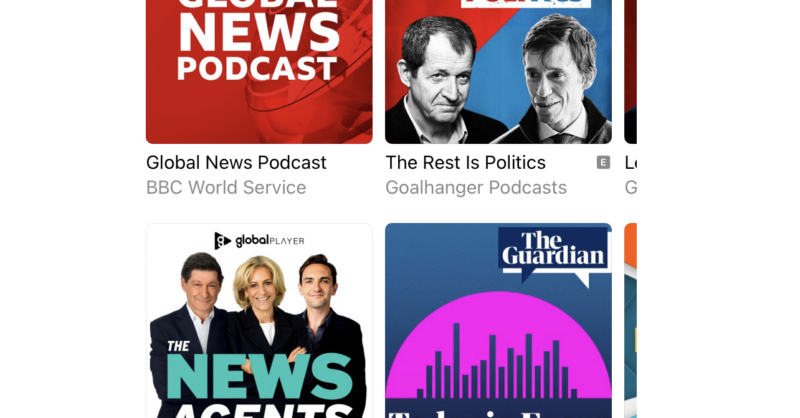- Digital Media Products, Strategy and Innovation by Kevin Anderson
- Posts
- Google's response to AI leaves more questions for publishers than answers
Google's response to AI leaves more questions for publishers than answers
PLUS The Guardian, Times, Economist, FT and Tortoise set up podcasting consortium
In conversations with publishers as well as corporate communication leaders and marketers, there is this sense that AI is driving change so quickly right now that we’re all scrambling to adjust. And as I have said, this comes on the heels of the decline of social platforms in terms of importance, at least in terms of publishers.
For most of the publishers that I have worked with over the last five years, social became an unreliable partner and then simply dropped - in some cases precipitously - as a source of traffic to their sites. Facebook traffic dropped by mid-double-digit percentages as a source of traffic, and Instagram and TikTok aren’t a major source of referral traffic. And beginning in 2018, we started to see the collapse of outlets that were overly reliant on social traffic.
But during that time, search, in the form of Google, returned to a dominant position as a driver of traffic. Moreover, in some recent work that I’ve done, Google, particularly with its personalised Discover product, has driven not only traffic but also conversions. It really has been a powerful discovery tool.
With Google declaring its own Code Red over AI, we are now left to wonder if the search giant will also end its reign as a traffic driver. After reading this piece in Nieman Lab about announcements at Google IO, I can only say that we don’t have enough information to make an informed decision. That is what happens during periods of change, product leaders need to monitor the data and stay close to their audiences and customers to de-risk decisions.
And the reality is that AI isn’t something sitting in a distant future, it’s now. I worry about the rush to use generative AI because I can see many publishers using it as a blunt instrument to achieve efficiencies. I know that this will happen simply due to the pressure on publishers and also the in-built bias that many publishing leaders to seek volume over value. I can safely say that publishers that use AI simply to increase content supply will continue to make the same mistakes, just at dizzying scale, of creating even more commoditised content that will fail to find an audience.
And building on my point about commoditised content, Peter Kafka of Vox predicts a ‘tsunami of bullshit’ from generative AI. I don’t disagree. In other predictions about what comes next Sara Fischer of Axios and Peter also discuss the upcoming consolidation in streaming services. They are sceptical of the launch of The Messenger, a throwback news service that is staffing up, and they say that it’s a good time to be a niche publication (or newsletter).
The example of high-quality publishers who have leaned into podcasting is the opposite of creating commoditised content. They have used distinctive audio content to build audience habits that drive regular engagement with their brands, and I recently highlighted, regularity is much more important than volume or time spent in building subscription businesses.
Two bits of practical advice on building social media audiences and building community around what you do, in this case, specifically around a radio station.





